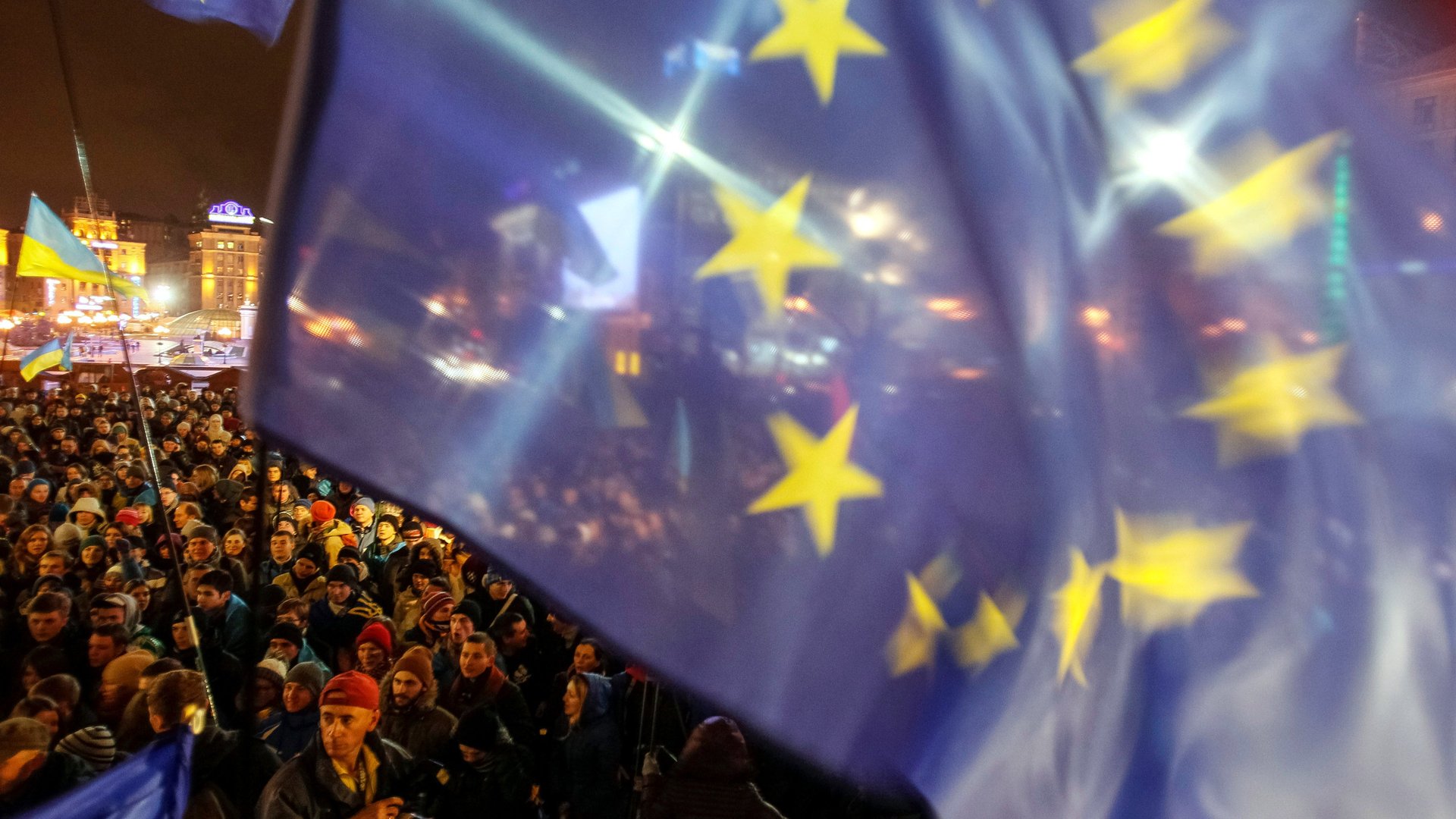Ukraine’s protests show there’s still some magic in the European project
Vladimir Putin tried to buy an economic alliance and found out it wasn’t for sale, but not because of his offering price.


Vladimir Putin tried to buy an economic alliance and found out it wasn’t for sale, but not because of his offering price.
Ukrainian protestors have taken to the streets after their government bowed to Russian president Putin’s pressure and called off a trade and harmonization agreement with the European Union. They have a unique point of view on the continent: The protestors are enthusiastic about the European economic integration, unlike like Spaniards, Italians and Greeks whose confidence in the European project is dropping after years of enduring the euro crisis.
Their attraction to Europe has little to do with short-term economic considerations. In the near-term, going against Russia could be a problem for Ukraine, since the country has serious economic problems, starting with plenty of foreign debt and a big current account deficit. Putin reportedly offered Ukrainian president Victor Yanukovych a carrot in the form of billions in subsidies and debt reduction (along with sticks that included an embargo on chocolate) in the hopes that the country would jilt the EU and join a trade bloc of former Soviet countries.
And Yanukovych did jilt the EU, which offered a loan of just €610 million ($825 million), and perhaps an IMF loan of €1 billion ($1.35 billion) that would only come with painful reforms. While the benefits of free trade with world’s largest economic bloc—or even joining it down the road—are likely large in the long-term, they don’t match the short term benefits offered by Russia, or the prospect of short-term pain a disgruntled Russia could cause.
International relations expert Daniel Drezner calls the situation “an important lesson about the limits of economic power.” Even if the European Union agreement is permanently scuttled—and Yanukovych suggests he may take it up again in the spring—the protests make clear that joining Russia’s alternative coalition is a non-starter as well.
Part of the problem may be optics: The protestors in the street talk a lot about freedom (many support freeing jailed opposition leader Yulia Tymoschenko, whose imprisonment is widely criticized) and the legal reforms that would be part of the European agreement. Those promise to improve rule of law in Ukraine at a time when Russia stands for exactly the opposite on the international stage.
Still, what’s motivating the protesters shouldn’t be ascribed to the Ukrainian people at large; most opinion polls show a significant minority of the country favor strengthened relations with Russia, while a thin majority support strengthening relations with Europe or both. The level of support for Europe could diminish if the economic situation there continues to worsen and there is no help from either bloc.